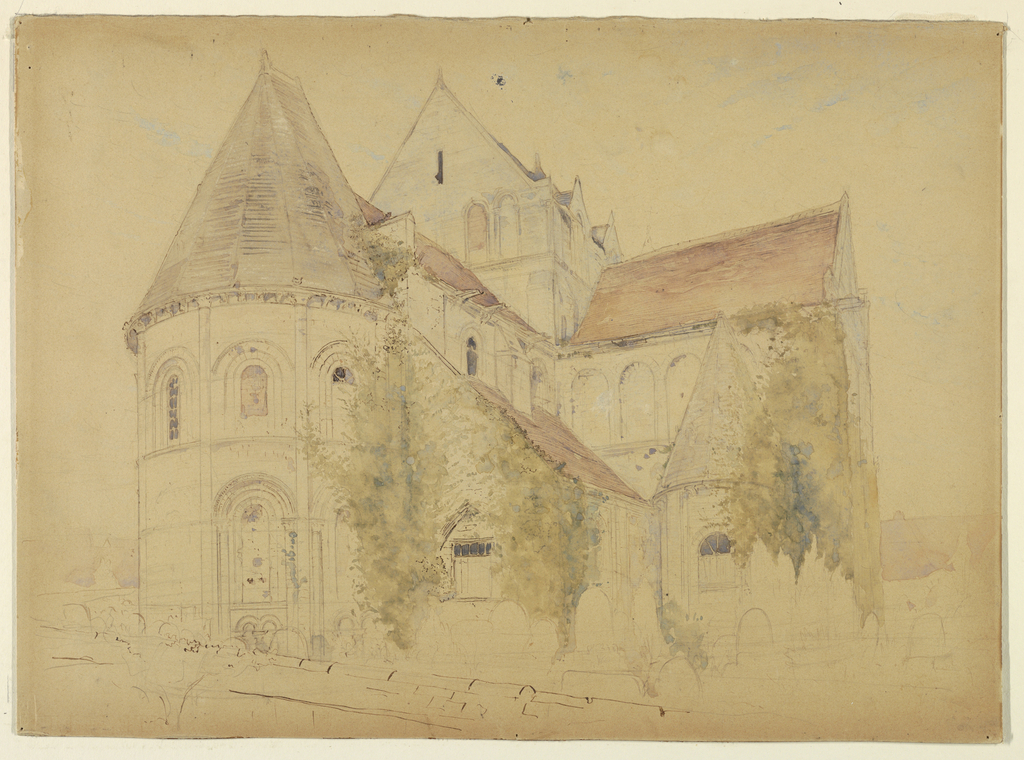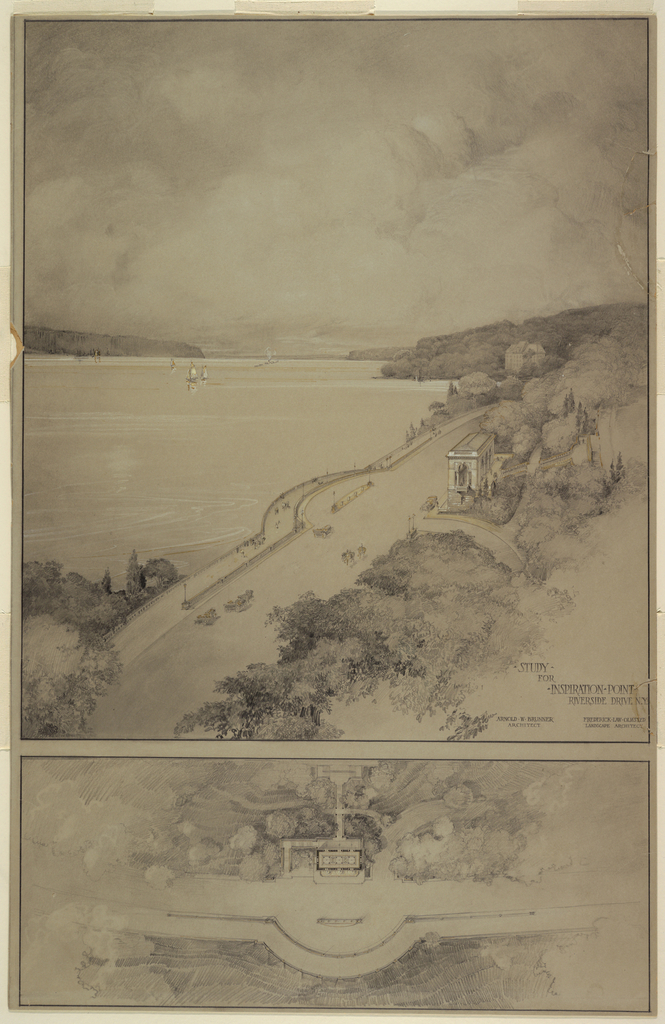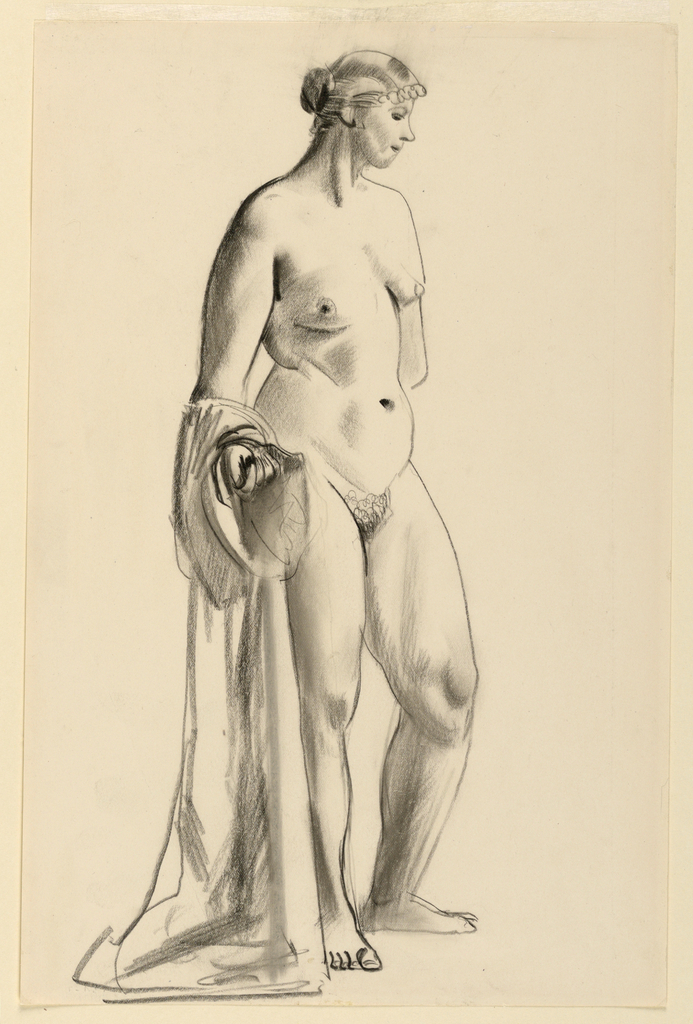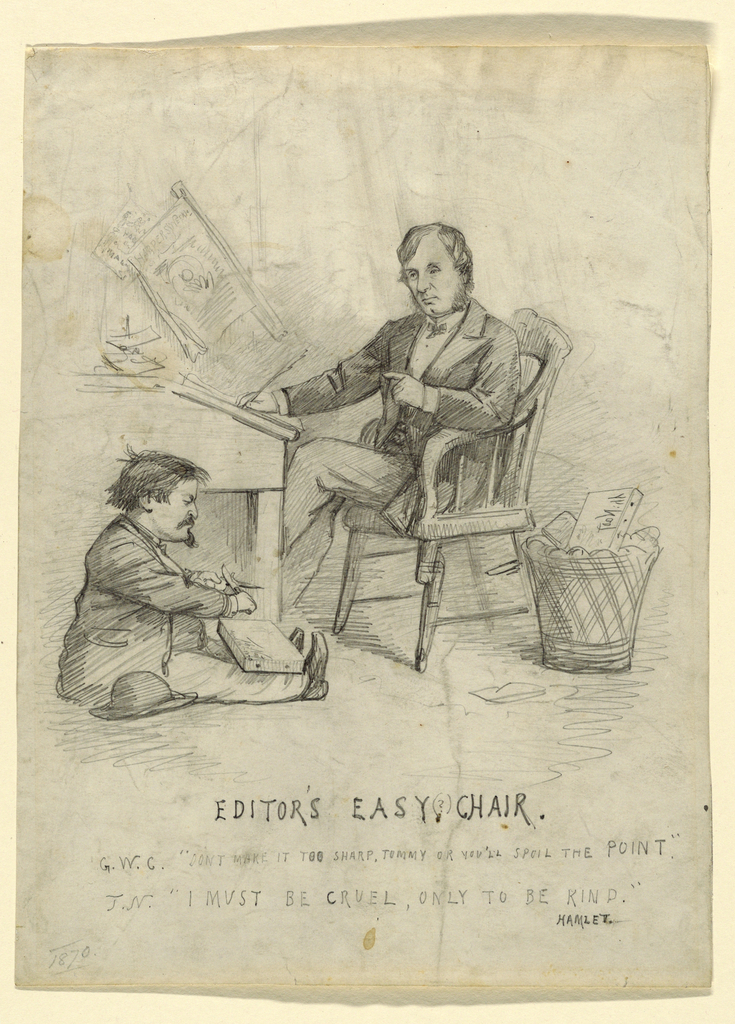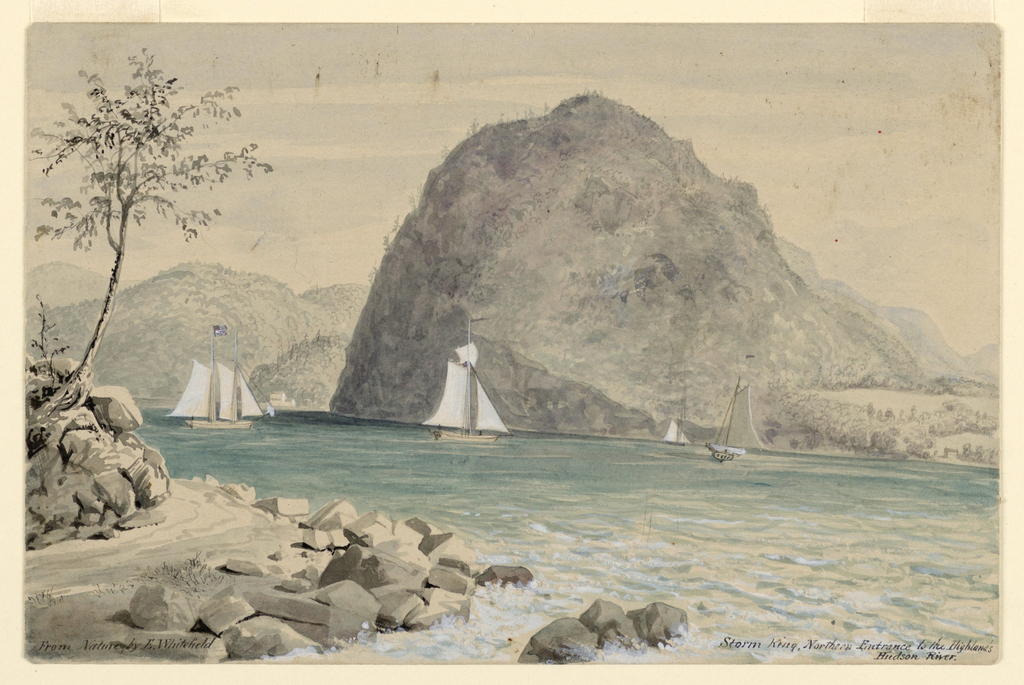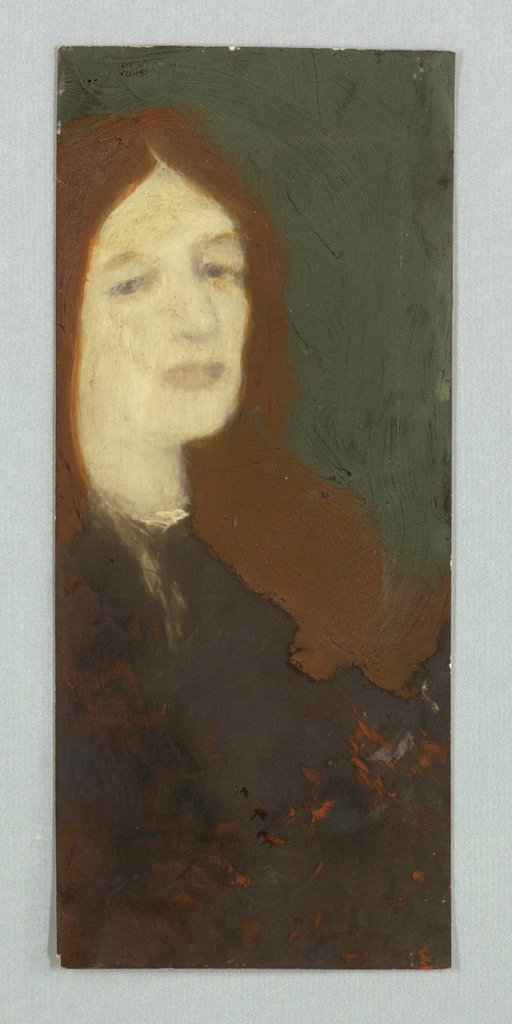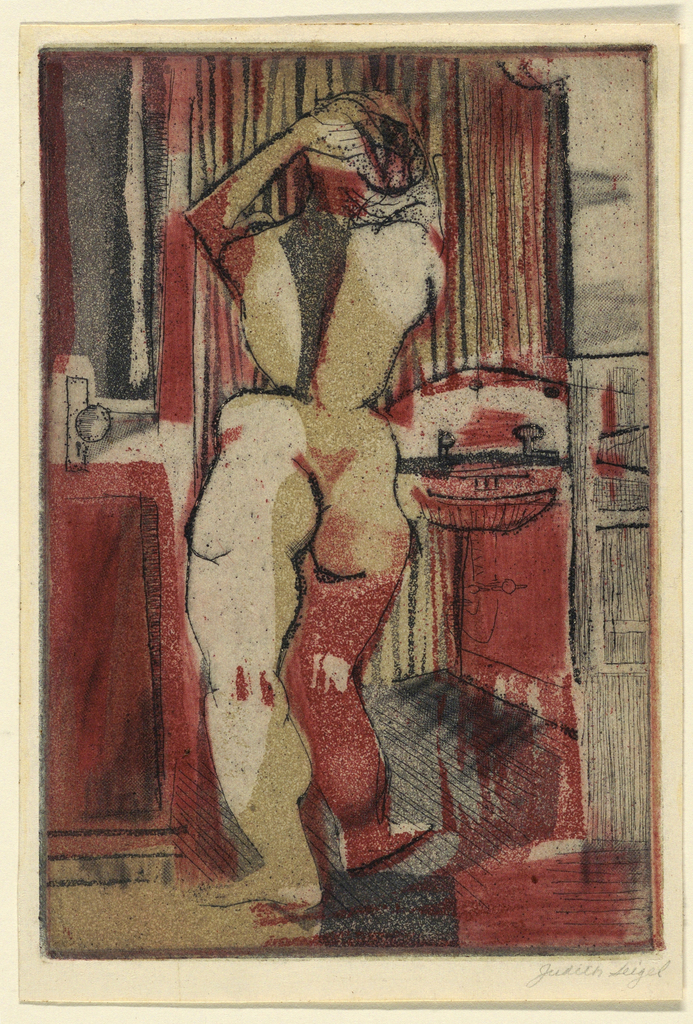Stanford White’s architectural legacy of beauty and sophistication is celebrated throughout New York City. Inspired by European architecture, White was a founder of the City Beautiful movement that spread across the country at the end of the nineteenth century. In 1878, as a young artist, White had traveled throughout Normandy and Belgium by train in...
In our most recent Short Story, we looked at the friendship between the Hewitt and Carnegie families, and how those relationships still shape Cooper Hewitt today. This month, a research mystery catches our eye. Recently, curatorial researcher Josephine Rodgers brought our attention to a lovely portrait of a woman given to the museum in 1931...
At the turn of the twentieth century, architectural projects throughout New York City were designed to prescribe how citizens interacted with nature. Study for Inspiration Point, Riverside Drive, New York City is a conceptual plan by landscape architect Frederick Law Olmsted (1822—1903) and architect Arnold William Brunner (1857—1925) for the development of a park and recreation...
George Bellows (1882–1925) revolutionized the field of graphic arts at the beginning of the twentieth century by pushing the boundaries of lithography. In his own words he strove to “rehabilitate the medium from the stigma of commercialism which has attached to it so strongly.”[1] In 1916 fellow American artist Albert Sterner (1863–1946) introduced Bellows to...
Today discussions concerning the divisive power of political rhetoric are being addressed throughout the national media. This drawing captures a pivotal moment in nineteenth-century American history that juxtaposes a similar debate. Thomas Nast (1840-1902) joined the staff of Harper’s Weekly in 1862 and his drawings of the Civil War established his reputation. George William Curtis...
This drawing is signed “From Nature, by E. Whitefield” and depicts a view of Storm King Mountain from across the Hudson River on the base of Breakneck Ridge. Today it is possible to visit the same viewpoint where Edwin Whitefield sketched the composition and admired the beauty of the landscape. Edwin Whitefield was born in...
In last month’s Short Story, we attended the weddings of Hewitt sister Amy Hewitt Green and that of her daughter Eleanor Margaret Green, who became Princess Viggo of Denmark. This month, researcher Josephine Rodgers discusses the introduction of American drawing into Cooper Hewitt’s collection through the work of Robert Frederick Blum. Margery Masinter, Trustee, Cooper...
The identity of the sitter for this composition remains unknown. However, subtle details of the subject’s facial expression accentuate a sense of introspection and melancholy. Distinct contours of the jaw and cheek bones, lips, nose, and eyes were first drawn in graphite. Soft tones of cream and white paint (of varying consistencies and amounts) developed...
In celebration of Women’s History Month, March Object of the Day posts highlight women designers in the collection. Judith (Judy) Seigel (1930-2017) received a certificate in Art from Cooper Union in 1954 and received a MFA degree in Photography from the Pratt Institute in 1980. Based in New York City, Seigel was as an illustrator...
